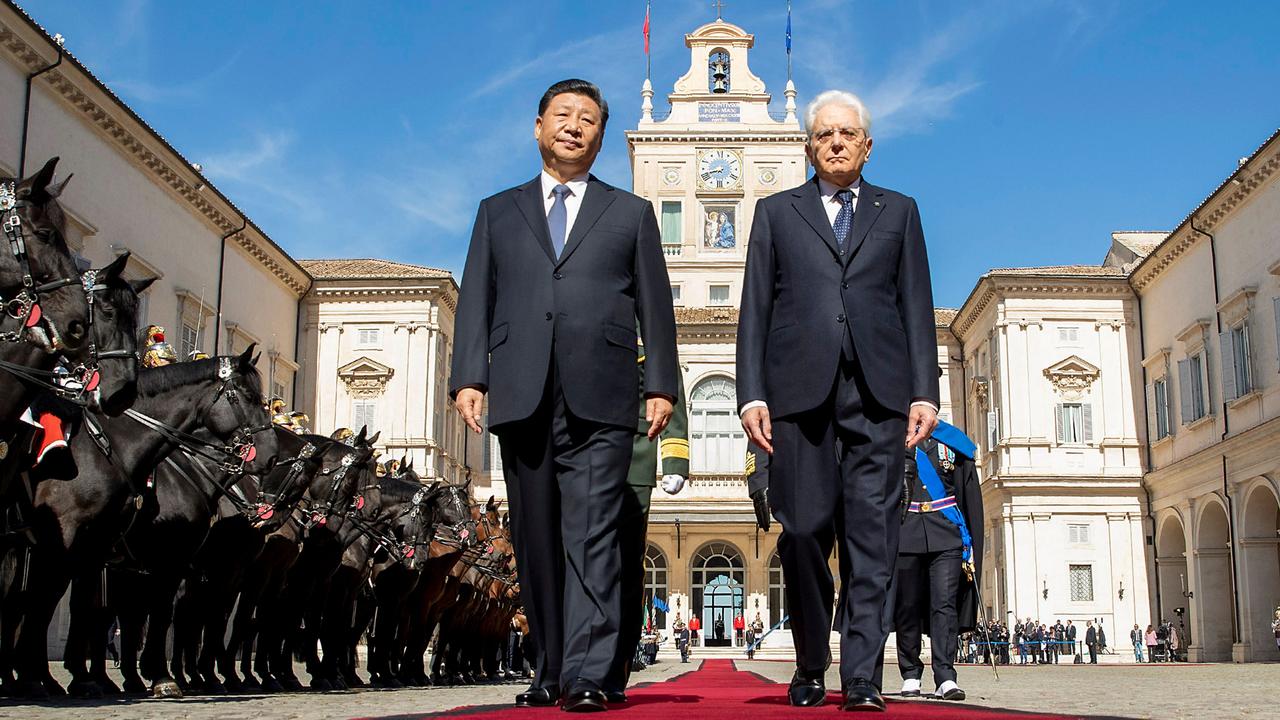Israel embassy issue costs Australia’s farmers
The possible relocation of Australia’s embassy in Israel is a hot topic closer to home.
What’s really at stake in the stand-off between Canberra and Jakarta over the potential relocation of the Australian embassy in Israel from Tel Aviv to West Jerusalem?
We’ve been told this issue has caused the postponement of the conclusion of the Indonesia-Australia Comprehensive Economic Partnership Agreement, the free-trade agreement ready for signing during one of the meetings both countries’ leaders have been attending during this annual summit season.
The Weekly Times has said the postponement is costing Australian farmers $14 million in monthly sales, with agriculture making up half of all exports to Indonesia — those farm products being valued at $3.5 billion last year.
About $1.3bn came from the sale of 4.2 million tonnes of wheat last year. The FTA would grant access for a further half million tonnes of feed grain — worth up to $12.5m a month, while tariff cuts on potatoes and carrots would gain exporters about $1m and $420,000 per month respectively.
Trade expert Alan Oxley adds in the latest report of his firm ITS Global that “Indonesia is one of the biggest markets for Australian boxed beef, offal and live cattle exports, with all three worth almost $1bn annually.”
Duty-free access for live cattle would rise under the FTA, while tariffs on frozen beef would be scrapped in five years.
Indonesia is also Australia’s biggest market for skim milk powder, at 36,541 tonnes a year, Oxley says, with tariffs to be eliminated under the new deal.
The bigger picture shows Australian exports, worth $7bn, growing 17 per cent in 2017, and placing Australia as Indonesia’s eighth biggest source of imports, while Australian imports from Indonesia totalled $4.2bn, making Indonesia Australia’s 16th source of imports.
For the last half dozen years or so, Indonesia’s economy has been growing at 5 per cent or more: not sensational by east Asian standards but steady.
Last week Indonesia’s former foreign minister, Marty Natalegawa, one of the smartest diplomats to emerge from the Asia-Pacific region in recent decades, was in Australia, speaking with influential audiences in Canberra and elsewhere, brought here by Griffith University’s Asia Institute.
He’s happy to see our region called the Indo-Pacific, but stresses that’s a different concept from the strategic India-Australia-Japan-US “quad”.
He said Indonesia and Australia had become proficient at managing the issues that inevitably disrupt relationships between neighbours. Thus the sooner the Israel embassy issue is decided one way or the other, the better.
Of course, from Australia’s side it’s said that this should have nothing to do with Indonesia. The political reality is, however, that in Indonesia’s rambunctious public affairs climate, it would always have become an issue.
The more so because Indonesians vote for their president on April 17, only about a month before Australians vote.
And the longer the matter drags on, the more it will become mired in electoral politics.
Indonesians will choose between the same candidates as in 2014: President Joko Widodo (Jokowi), and former strongman general Prabowo Subianto, son-in-law of the late president Suharto.
Jokowi has chosen as his Vice-President, 75-year-old Ma’ruf Amin, chairman of the Indonesian Ulema Council, the conservative peak body of Muslim clerics.
Prabowo — who represents the old elite and will be chasing down any issue that might break his way with the youthful electorate — came close to winning last time and, despite being well behind in the polls cannot be ruled out.
Indonesian social media abounds with fake news that Jokowi is a secret Christian and other inventions — thus his choice of running mate. And if the Australia/Jerusalem story keeps running, his campaign managers will be urging him to leap on that to underline his Muslim credentials, which would ensure the FTA implementation is postponed.
Five presidential and VP debates lie ahead and, based on past performance, IMA Asia says, “Jokowi should do well enough to maintain his lead — with a slightly more Islamic platform”.
The President is mostly sticking to his first-term pledges to accelerate infrastructure, suppress corruption and boost industry, while Ma’ruf has committed to compulsory halal certification for all foods.
The challenge, says IMA, remains poor implementation: “Whether Jokowi’s second-term government will be better at policy delivery is open to question. In his first term, he failed to bring chaotically run ministries into line.”
Post-Suharto Indonesia has become a mostly inward-looking country, despite its youth, with its median age just 31, and as many as 40 per cent of Indonesians under 24, many of whom will vote for the first time in April.
Tim Lindsey, director of the Centre for Indonesian Law, Islam and Society at Melbourne University, says that “as well as being more religious, many of these young Indonesians are also surprisingly conservative”.
They have little experience of Suharto’s repressive order and the extraordinary events that dismantled it — how their country rejected authoritarianism in favour of liberal democratic aspirations.
Instead, “they have grown up in the post-Reformasi environment of clunky and increasingly illiberal procedural democracy, amid contests over Islamisation and the rise of the intolerant conservative Islamists”.
The elections will be a chance for this generation to pass judgment, and a crucial moment for Indonesia, Lindsey says.
“How young Indonesians respond to the tensions and the challenges of increasing populist majoritarian intolerance driven by Muslim conservatism will determine the country’s social and political configuration for decades ahead.”
Their decision will matter intensely to Australia too. Indonesia may choose a path “much more religious, much less liberal and a good deal less enthusiastic about engagement with foreigners, including us”.




To join the conversation, please log in. Don't have an account? Register
Join the conversation, you are commenting as Logout